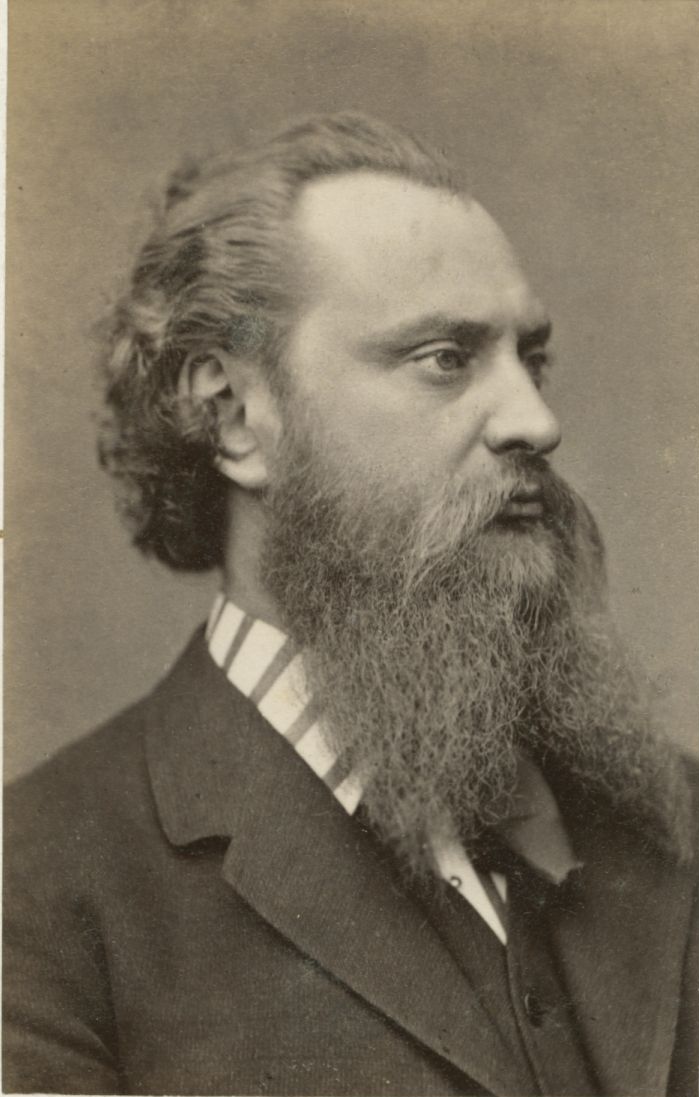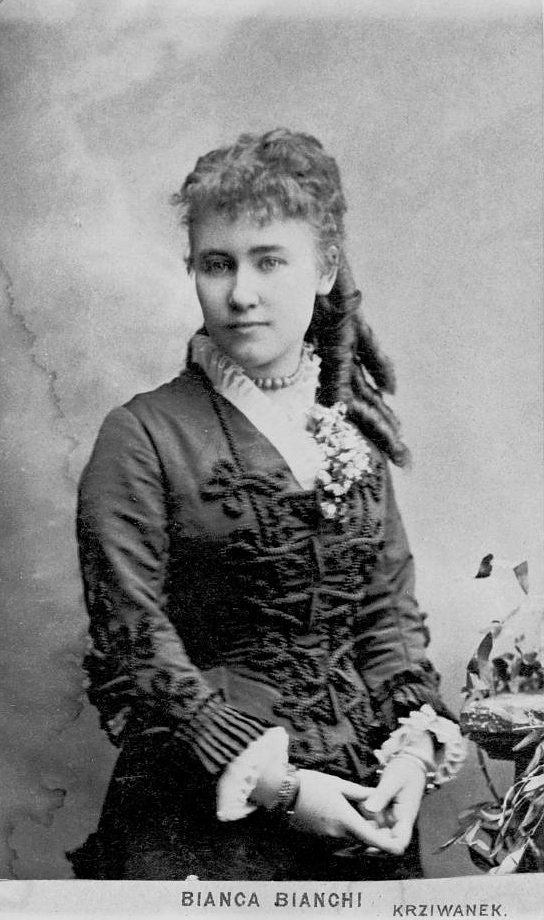|
Bernhard Pollini
Bernhard Pollini, real name Baruch Pohl, (16 December 1838 – 26 November 1897) was a German operatic tenor, and opera director. Life Born in Cologne, Pollini came from a strictly Jewish family living in very modest circumstances and was actually called Baruch Pohl. He attended grammar school and then worked for a merchant before he made his debut in 1857 in his native town as ''Lord Arturo Talbo'' in the opera ''I puritani'' by Bellini. He changed to baritone and in the autumn of 1865, he joined an Italian opera company of which he became impresario. This was the beginning of his career as one of the most important opera directors of his time. He sang at the Anhaltisches Theater and in the years 1860 and 1861 at the Latvian National Opera. In 1864, he became director of the Lviv Theatre of Opera and Ballet and then went to St Petersburg and Moscow for a few years, where he was chief impresario of the Italian Opera. In 1874, he became director of the Hamburg State Opera an ... [...More Info...] [...Related Items...] OR: [Wikipedia] [Google] [Baidu] |
Kapellmeister
(, also , ) from German ''Kapelle'' (chapel) and ''Meister'' (master)'','' literally "master of the chapel choir" designates the leader of an ensemble of musicians. Originally used to refer to somebody in charge of music in a chapel, the term has evolved considerably in its meaning and is today used for denoting the leader of a musical ensemble, often smaller ones used for TV, radio, and theatres. Historical usage In German-speaking countries during the approximate period 1500–1800, the word often designated the director of music for a monarch or nobleman. For English speakers, it is this sense of the term that is most often encountered, since it appears frequently in biographical writing about composers who worked in German-speaking countries. During that period, in Italy, the position (Italian: ''maestro di capella'') largely referred to directors of music assigned to cathedrals and sacred institutions rather than those under royal or aristocratic patronage. A Kapellmeister ... [...More Info...] [...Related Items...] OR: [Wikipedia] [Google] [Baidu] |
Die Walküre
(; ''The Valkyrie''), WWV 86B, is the second of the four music dramas that constitute Richard Wagner's '' Der Ring des Nibelungen'' (English: ''The Ring of the Nibelung''). It was performed, as a single opera, at the National Theatre Munich on 26 June 1870, and received its first performance as part of the ''Ring'' cycle at the Bayreuth Festspielhaus on 14 August 1876. As the ''Ring'' cycle was conceived by Wagner in reverse order of performance, ''Die Walküre'' was the third of the four texts to be written, although Wagner composed the music in performance sequence. The text was completed by July 1852, and the music by March 1856. Wagner largely followed the principles related to the form of musical drama, which he had set out in his 1851 essay '' Opera and Drama'' under which the music would interpret the text emotionally, reflecting the feelings and moods behind the work, using a system of recurring leitmotifs to represent people, ideas, and situations rather than the co ... [...More Info...] [...Related Items...] OR: [Wikipedia] [Google] [Baidu] |
Die Welt
''Die Welt'' ("The World") is a German national daily newspaper, published as a broadsheet by Axel Springer SE. ''Die Welt'' is the flagship newspaper of the Axel Springer publishing group. Its leading competitors are the ''Frankfurter Allgemeine Zeitung'', the ''Süddeutsche Zeitung'' and the ''Frankfurter Rundschau''. The modern paper takes a self-described "liberal Cosmopolitanism, cosmopolitan" position in editing, but it is generally considered to be conservative."The World from Berlin" ''Der Spiegel'', 28 December 2009."Divided on unification" ''The Economist'', 4 October 2010. As of 2016, ... [...More Info...] [...Related Items...] OR: [Wikipedia] [Google] [Baidu] |
Die Meistersinger Von Nürnberg
(; "The Master-Singers of Nuremberg"), WWV 96, is a music drama, or opera, in three acts, by Richard Wagner. It is the longest opera commonly performed, taking nearly four and a half hours, not counting two breaks between acts, and is traditionally not cut. With Hans von Bülow conducting, it was first performed on 21 June 1868 at the National Theater in Munich, today home of Bavarian State Opera. The story is set in Nuremberg in the mid-16th century. At the time, Nuremberg was a free imperial city and one of the centers of the Renaissance in Northern Europe. The story revolves around the city's guild of '' Meistersinger'' (Master Singers), an association of amateur poets and musicians who were primarily master craftsmen of various trades. The master singers had developed a craftsmanlike approach to music-making, with an intricate system of rules for composing and performing songs. The work draws much of its atmosphere from its depiction of the Nuremberg of the era and th ... [...More Info...] [...Related Items...] OR: [Wikipedia] [Google] [Baidu] |
Anna Von Mildenburg
Anna Bellschan von Mildenburg (29 November 1872 – 27 January 1947) was an eminent Wagnerian soprano of Austrian nationality. Known as Anna Bahr-Mildenburg after her 1909 marriage, she had been a protégé of the composer/conductor Gustav Mahler during his musical directorship at the Hamburg State Opera. In 1898, Mahler took her to the Vienna State Opera, where she established herself as one of the great stars during his celebrated tenure there as music director. Biography Anna Bellschan von Mildenburg, to give her full maiden name, was born in Vienna, the Austrian capital. She studied voice with Rosa Papier and Johannes Ress at the Conservatory of Gesellschaft der Musikfreunde in Vienna (now the University of Music and Performing Arts Vienna), and then privately with Cosima Wagner and Mahler. She had an affair with the latter which lasted until 1897 but some rumors say it lasted longer and even her child Roland is the result of this affair. Von Mildenburg made her operat ... [...More Info...] [...Related Items...] OR: [Wikipedia] [Google] [Baidu] |
Katharina Klafsky
Katharina Klafsky (19 September 1855 – 22 September 1896) was a Hungarian operatic singer whose acclaimed international career was cut short by a chronic illness which proved fatal. Klafsky was born at Szent-János, Wieselburg, of humble parents. Being employed at Vienna as a nursemaid, her fine soprano voice led to her being engaged as a chorus singer, and she was given lessons in music. By 1882, she became well known in Wagnerian roles at the Leipzig theatre, and she increased her reputation by appearing at other German musical centres. In 1892, she appeared in London, and had a great success in Wagner's operas, notably as Brünnhilde and as Isolde, her dramatic as well as vocal gifts being of an exceptional order. She sang with the Damrosch Opera Company in America in 1895, but died of brain cancer in 1896. Klafsky was married to the conductor Otto Lohse Otto Lohse (21 September 1859 – 5 May 1925) was a German conductor and composer. Born in Dresden, Lohse studied w ... [...More Info...] [...Related Items...] OR: [Wikipedia] [Google] [Baidu] |
Albert Niemann (tenor)
Albert Wilhelm Karl Niemann (15 January 1831 – 13 January 1917) was a leading German tenor opera singer especially associated with the operas of Richard Wagner. He gave important premieres in France, Germany, England and the United States, and played Siegmund in the first complete production of ''Der Ring des Nibelungen'' (Bayreuth Festspielhaus 1876). Early career Born in Erxleben, in the Prussian Province of Saxony (now Saxony-Anhalt), Niemann lost his father (an innkeeper) at an early age and was brought up by his mother, a woman 'of almost unwomanly hardness' who lived to be ninety. He was apprenticed to an engine-maker, but ran away to Dresden to make his own life. He grew up with a Germanic dedication to hunting but also student-like, reading extensively in science, history and philosophy. He was not particularly sociable or tactful, was blunt in speech and often boorish in behaviour. Niemann made a debut in Dessau in 1849, singing in minor roles and in chorus. He re ... [...More Info...] [...Related Items...] OR: [Wikipedia] [Google] [Baidu] |
Primadonna
In opera or commedia dell'arte, a prima donna (; Italian language, Italian for "first lady"; plural: ''prime donne'') is the leading female singer in the company, the person to whom the prime roles would be given. ''Prime donne'' often had grand off-stage personalities and were seen as demanding of their colleagues. From its original usage in opera, the term has spread in contemporary usage to refer to anyone behaving in a demanding or temperamental fashion, or having an inflated view of oneself and a self-centered attitude. The prima donna in opera was normally, but not necessarily, a soprano. The corresponding term for the male lead (usually a castrato in the 17th and 18th centuries, later a tenor) is primo uomo.H. Rosenthal, H. and J. Warrack, ''The Concise Oxford Dictionary of Opera'', 2nd Edition, Oxford University Press, 1979. p. 398. Opera In 19th-century Italy, the leading woman in an opera or commedia dell'arte company was known as the ''prima donna'', literally th ... [...More Info...] [...Related Items...] OR: [Wikipedia] [Google] [Baidu] |
Bertha Schwarz
Bertha Schwarz, often known by her stage name Bianca Bianchi, was a German coloratura soprano opera singer of the late 19th century. Her greatest successes were at Vienna. Life Schwarz was born in Heidelberg on 27 January 1855, the daughter of actors who worked at nearby Mannheim. As an opera singer, she was for many years a prominent member of the company of the Vienna State Opera, Vienna Court Opera, where her fame was such that an asteroid discovered on 4 September 1880 was named 218 Bianca in her honour. Two years later Johann Strauss II was inspired by her to compose his ''Frühlingsstimmen'' waltz for orchestra and solo soprano voice, still familiar today. Although based in Vienna, Bianchi sometimes performed in other cities of the German and Austrian empires, notably Hamburg, Karlsruhe and Budapest. In 1894, she married the impresario Bernard Pollini, who had been her manager. She died in Salzburg on 16 February 1947 aged 92. References External links * 1 ... [...More Info...] [...Related Items...] OR: [Wikipedia] [Google] [Baidu] |
Soprano
A soprano () is a type of classical female singing voice and has the highest vocal range of all voice types. The soprano's vocal range (using scientific pitch notation) is from approximately middle C (C4) = 261 Hz to "high A" (A5) = 880 Hz in choral music, or to "soprano C" (C6, two octaves above middle C) = 1046 Hz or higher in operatic music. In four-part chorale style harmony, the soprano takes the highest part, which often encompasses the melody. The soprano voice type is generally divided into the coloratura, soubrette, lyric, spinto, and dramatic soprano. Etymology The word "soprano" comes from the Italian word '' sopra'' (above, over, on top of),"Soprano" '' |





_(c112-02-14).jpg)
